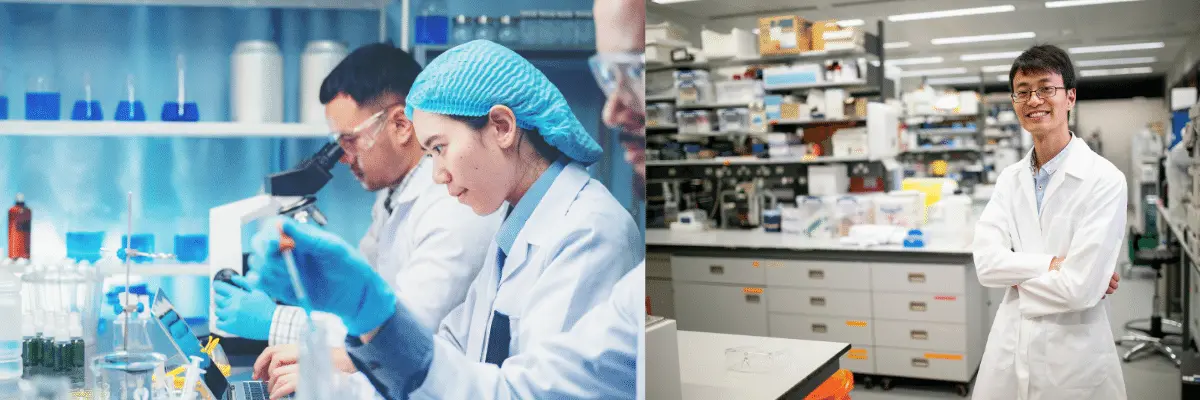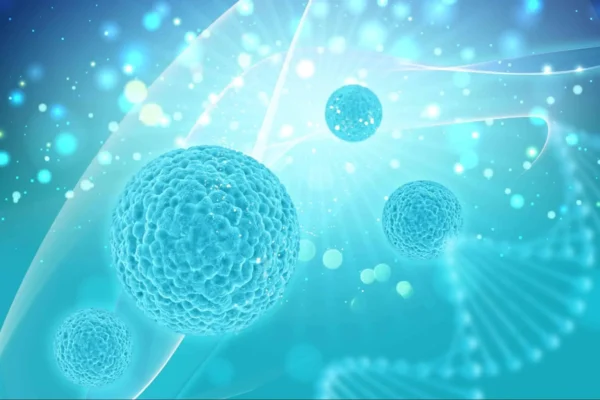
CAR T-Cell Therapy in China
CAR T-Cell therapy in China is progressing remarkably and has the potential to revolutionize cancer treatment. China is now a pioneer in this industry thanks to its strong regulatory framework and research infrastructure, which have fueled its development.
CAR T-Cell therapy in China is available for 40,000 USD. As the cost of CAR T-Cell therapy in China is considerably lower than in other parts of the world, it has gained massive popularity and attention.
Furthermore, China’s enormous patient population offers a special benefit for carrying out clinical trials and compiling data.
What Makes CAR T Cell Therapy In China So Special?
CAR T-cell therapy in China is a significant advancement in cancer treatment and has given patients who previously had few options new hope. This innovative therapy has gained prominence in China, where over 700 ongoing clinical trials are exploring ways to enhance its effectiveness and safety.
China has emerged as a pioneer in this field, showcasing a strong dedication to medical research and advanced patient care. The science behind CAR T Cell therapy for cancer in China involves modifying a patient’s own immune cells to recognize and attack cancer cells. This is achieved through genetic engineering, where the patient’s T cells are equipped with a chimeric antigen receptor (CAR) that targets cancer-specific proteins. T cells are removed from the patient, genetically modified in a laboratory, and then infused back into the patient’s body to attack cancer.
CAR T cell therapy for cancer in china has been effective in treating a variety of cancers, and continuing research continues to refine and broaden its applicability. With commercial applications such as Yescarta and Relma-cel, the future of CAR T-cell treatment in China is bright, with major market growth projected and domestic players making substantial breakthroughs. The journey from clinical trials to commercial applications reflects the dedication to advancing medical science for the benefit of cancer patients in China.
CAR T Cell Therapy In China Is Outranking The U.S. In Cancer Solutions!
How China Is Dominating The Clinical Trials?
As of January 2024, there are more than 700 clinical trials currently ongoing in various hospitals in China that are focused on the development of CAR T Cell therapy. Since 2017, the Chinese government has invested heavily in the biotechnology space, and the results are overwhelming. China has emerged as a cancer research powerhouse, especially in the ground-breaking field of CAR-T cell therapy for cancer in China. These clinical studies, undertaken by prestigious institutes, are making significant progress in treating various types of cancer. CAR T cell therapy for leukemia in China, CAR T-Cell Therapy for lymphoma and BCMA-based CAR T Cell therapy for multiple myeloma in China are some major types that are getting positive responses in the trials.
For example, the Peking University Cancer Hospital in Beijing, China, has shown excellent results in treating relapsed or resistant acute lymphoblastic leukemia (ALL) with CAR-T cells, providing a lifeline for patients with limited options.
The focus isn’t just on blood cancers; China is also looking into CAR-T cell therapy for solid tumors, which have previously been difficult to treat. To overcome the difficult immune-suppressed conditions present in tumors, smart strategies are being applied to improve CAR-T cell effectiveness.
International collaborations play a vital role in China’s success, with Chinese researchers partnering globally to exchange expertise. This move could revolutionize CAR T in China, offering a convenient and cost-effective alternative.
What Is The Scope Of CAR-T Therapy In China?
The use of chimeric antigen receptor (CAR) T-cell treatments in the treatment of hematological malignancies has been incredibly effective. The application of CAR T-cell treatments has grown in China over the past nine years.
The first CAR T cell clinical studies started in 2013, and by 2017, there were more CAR T cell clinical trials than ever before. Soon after, China announced that it would provide a total of US$237 billion in funding for cell therapy businesses in 2021, which represented a huge increase in the number of clinical trials and fundamental research projects involving CAR T cells.
Strong government support, money inflow, high patient demand, a distinctive healthcare system, and the efforts of Chinese doctors and scientists all contributed to this significant surge in activity in China.
CAR T-Cell therapy from China, like Cilta-Cel therapy, has received USFDA approval for treating multiple myeloma.
CAR T-Cell therapy process
CAR T Cell Therapy for multiple myeloma in China, as well as other types of blood cancer, is a type of advanced immunotherapy that includes reprogramming a patient’s own immune cells to target and eliminate cancer cells. The CAR T cell process typically involves several key steps:
Cell Collection (Apheresis):
The practice of collecting a patient’s T cells, a type of immune cell, is known as apheresis. During apheresis, blood is collected from the patient and a machine separates the T cells. The remaining blood is then returned to the patient’s body. T cells are collected from the blood using a tube inserted into an arm vein. This takes a couple of hours.
Genetic Modification:
T cells are genetically modified in the lab to express a Chimeric Antigen Receptor (CAR) on their surface. The CAR is programmed to recognize specific proteins, or antigens, found on the surface of cancer cells.
Expansion of Cells:
The genetically modified T cells are then cultivated and multiplied, resulting in a vast population of CAR T cells. This procedure ensures that there are enough modified T cells accessible for an effective treatment.
Conditioning (Lymphodepletion):
Patients are commonly subjected to a conditioning treatment before CAR T-cell infusion, which may include low-dose chemotherapy or radiation. This conditioning helps create an environment in which the freshly infused CAR T cells can multiply and function within the patient’s body.
Infusion of CAR T-Cells:
Once prepared, the CAR T cells are injected back into the patient’s bloodstream through a drip. The infused CAR T cells then circulate throughout the body, seeking out and binding to cancer cells expressing the targeted antigen.
Targeting and Killing Cancer Cells:
When a CAR T cell comes into contact with a cancer cell containing the appropriate antigen, it binds to the cancer cell. This interaction activates the CAR T cell, causing it to release molecules that kill the cancer cell.
Response Monitoring:
Patients are closely monitored for any signs of response, including a reduction in the size of tumors. The success of CAR T-cell treatment is evaluated using a variety of imaging and laboratory testing.
Managing Side Effects:
Some patients may have cytokine release syndrome (CRS) or neurotoxicity, which are closely monitored by healthcare specialists.
How To Apply For CAR T-Cell Therapy In China?
Send your reports
Send the following reports which includes Medical summary, Latest blood reports, Biopsy, Latest PET Scan, Bone marrow biopsy (If available) to info@cancerfax.com or WhatsApp them at +1-213 789-56-55
Evaluation & Opinion
Once our team receives your medical reports, we analyze them and send them to hospitals that are performing CAR T-Cell therapy with that type of cancer and marker. We send reports to the concerned specialist and get his opinion. We also get estimates from the hospital on complete treatment.
Medical visa and travel
Once you decide to visit for the treatment, we arrange for a medical visa letter and other necessary documents from the hospital. Once the visa is ready we help and guide you in preparing for travel and flight tickets.
Treatment and follow up
Our representative will arrange for a doctor's appointment and complete the necessary registration formalities for you. He will also help you with your hospital admission and other local help and support that is required. After the treatment is over we will arrange for your follow-up consultation with the treating doctor.
Why Is China the Best Option?
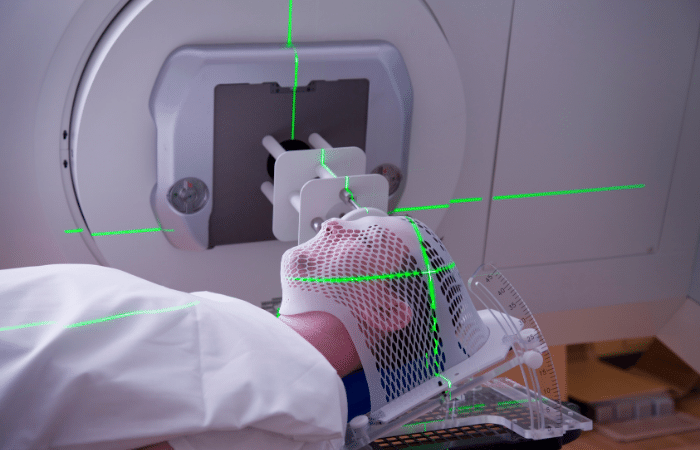
Clinical Trials & Advance Research
With more than 700 ongoing clinical trials on CAR T-Cell therapy for cancer in China has achieved great strides. Innovative CAR T-cell therapies have been actively developed and tested by Chinese researchers and medical institutes, with a focus on both solid tumors and hematological malignancies. In terms of CAR T cell therapy developments, China has been in the vanguard, and numerous cutting-edge clinical trials are happening there. Because of this, patients looking to access the most recent developments in CAR T cell therapy may find China to be an appealing alternative.

Cost And Availability
CAR T-Cell therapy cost in China is significantly lower than that in countries like the US, UK, Australia, Japan, Korea, and Singapore. CAR T-Cell therapy in China may cost just $60,000. China has a comparatively high availability of CAR T cell therapy for cancer in China. There may be shorter treatment wait periods now that more medical facilities in China have received regulatory authorization to provide CAR T cell therapy. In addition, CAR T cell therapy is frequently less expensive in China than it is in other places, like the United States. This element may be especially important for people looking for affordable treatment choices.

Expertise And Experience
Due to its participation in multiple clinical trials and therapies, China has developed a significant amount of knowledge and experience in providing CAR T cell therapy for leukemia in china Chinese medical experts have improved their knowledge of CAR T cell therapy-related problems and their ability to manage them to improve patient outcomes. China offers high-quality healthcare thanks to its vast patient population, supportive infrastructure, and collected knowledge in CAR T cell therapy for cancer in China.

Companies In The U.S. Collaborating With Chinese Companies
In recent years, American businesses have begun collaborating with their Chinese counterparts to develop CAR T cell medicines. For ex. In 2015, WuXi AppTec, a Chinese contract research organization (CRO), and Juno Therapeutics, a US-based biopharmaceutical business, partnered strategically. Chinese biopharmaceutical company Cellular Biomedicine Group worked with US biopharmaceutical company Celgene, which is now a division of Bristol-Myers Squibb. A global partnership and license deal was made between Janssen Biotech, a pharmaceutical firm owned by Johnson & Johnson, and Legend Biotech, a business with operations in both China and the US.
Top Doctors For CAR-T Therapy In China
Take an expert second opinion on CAR T-Cell therapy infusion from the best researchers in China.

Prof. Peihua Peggy Lu, (MD)
Medical Executive President of Lu Daopei Hospital, Beijing, China , Experience: 27 Years
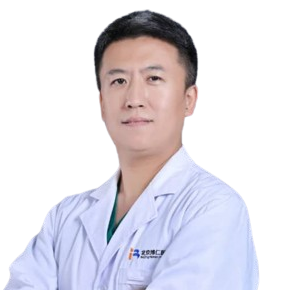
Dr Zhao Defeng, (MD)
Director, Hematology Department , Beijing Gobroad Hospital, Experience: 24 Years
Dr. Zhao Defeng is the Director of the Hematology Department at Gaobo Medical (Hematology) Beijing Research Center, Beijing Gaobo Boren Hospital, specializing in general hematology in Ward Nine. He holds the position of Associate Chief Physician and has a Master’s degree from the Second Military Medical University. Dr. Defeng has experience with over 1000 patients administering CAR T-cell therapy and has more than 23 ongoing clinical trials on it. He is regarded as one of the best doctors for CAR T-cell therapy in China.
Top Hospitals For CAR T Treatment In China
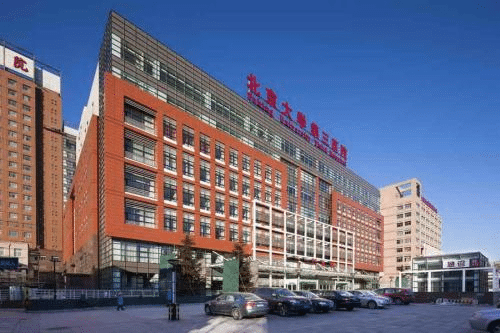
Peking University Cancer Hospital
The innovative immunotherapy method known as CAR T-cell therapy has shown exceptional promise in the treatment of a variety of malignancies. Beijing, China’s Peking University Cancer Hospital has become a global leader in the development of CAR T-cell treatment. With the help of their multidisciplinary team, which consists of oncologists, immunologists, and geneticists, personalized cancer treatment has advanced significantly. Peking University Cancer Hospital has obtained outstanding outcomes in patients with hematological malignancies by altering patients’ T cells to express chimeric antigen receptors (CARs). This cutting-edge treatment gives cancer patients fresh hope while revolutionizing the field of oncology and raising survival rates.
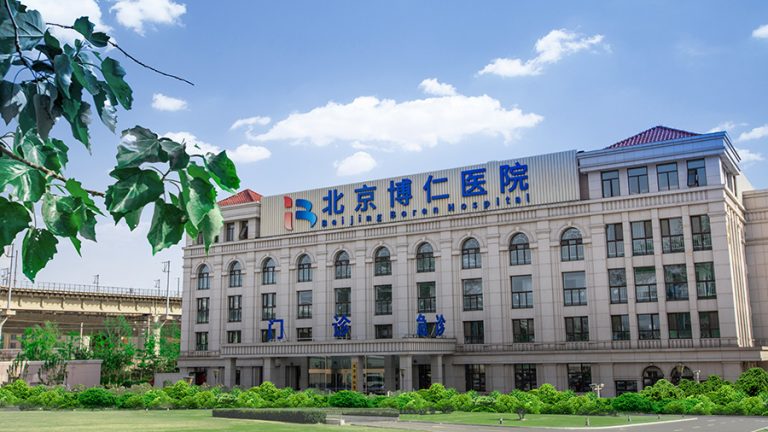
Beijing Gobroad Boren Hospital
The renowned specialist possesses three decades of extensive internal clinical and laboratorial experience, with a particular focus on the domain of hematology. The department provides a range of diagnostic and therapeutic services for diseases affecting the hematological system, such as multiple myeloma, leukemia, lymphoma, thalassemia, coagulation disorders, and hematological tumors. It specializes in individualized treatment plans and integrated diagnosis for hematologic diseases. Treatment options for hematologic tumors include chemotherapy, immunotherapy, targeted therapy, demethylation, and radiotherapy. Furthermore, in order to ensure the safety and efficacy of medication use, our medical staff likewise modifies dosages in accordance with drug metabolism genotype characteristics and drug concentration monitoring.
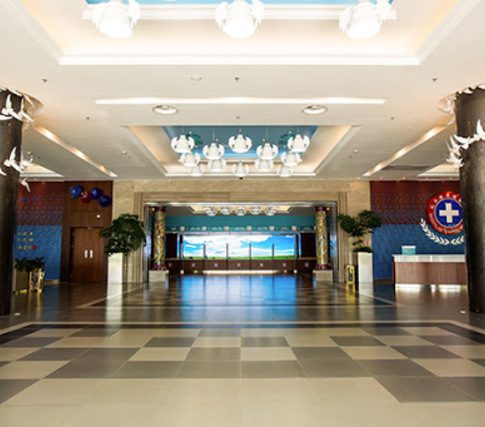
Lu-Daopei Hospital
Beijing, China’s Lu Daopei Hospital has significantly advanced the field of CAR T-cell treatment. Lu Daopei Hospital, which places a high priority on cancer treatment and research, has been at the forefront of applying CAR T-cell therapy to treat hematological malignancies. Oncologists, immunologists, and geneticists on their team have been committed to completing clinical trials and creating patient-specific CAR T-cell therapy. Lu Daopei Hospital has seen encouraging improvements in patient outcomes and survival rates because of its knowledge and cutting-edge facilities. Their work continues to influence how cancer is treated, opening up fresh opportunities for patients who need hope. To date, they claim to have done more than 1000 CAR T-Cell therapy infusions.
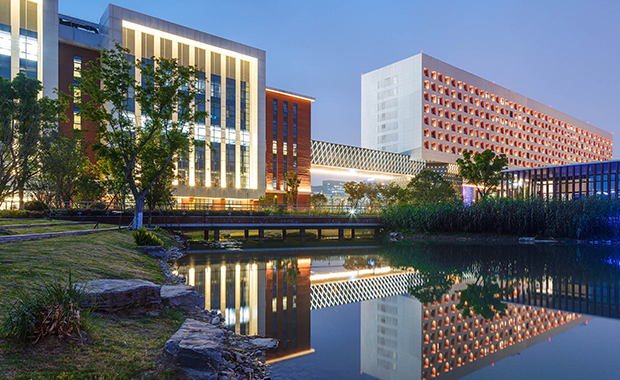
The First Affiliated Hospital, Zhejiang University School of Medicine, Hangzhou
The First Affiliated Hospital, Zhejiang University School of Medicine was founded in 1947. It is the earliest affiliated hospital of Zhejiang University, the first batch of Institutions to construct “top-level” national medical centers, National Medical Center for Infectious Diseases, Leading Institution for Constructing National-Level Co
The First Affiliated Hospital, Zhejiang University School of Medicine website
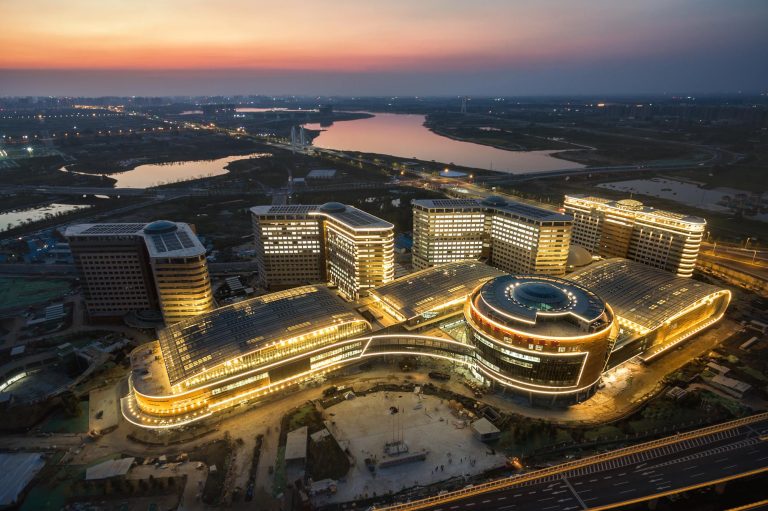
First Affiliated Hospital Of Zhengzhou University
In the field of CAR T-cell treatment, the First Affiliated Hospital of Zhengzhou University, situated in Zhengzhou, China, has become a well-known organization. The hospital has made tremendous progress in maximizing the potential of CAR T-cell therapy for patients by placing a major emphasis on cutting-edge cancer treatments. Oncologists, immunologists, geneticists, and other members of their interdisciplinary medical staff have all taken an active part in studies and clinical trials. The facility has treated hematological malignancies with impressive success thanks to the use of CAR T-cell therapy. As personalized cancer therapy develops, The First Affiliated Hospital of Zhengzhou University is at the forefront, giving patients fresh hope and a better quality of life.
CAR T-Cell therapy cost in China
Let’s take a closer look at the cost of CAR-T cell therapy in China. It typically ranges from $45,000 to $80,000. The cost of FUCASO (BCMA based CAR T-Cell therapy for multiple myeloma) costs around $ 200,000 USD. But keep in mind that these are just rough estimates, and the exact cost depends on a few factors.
The type of CAR-T therapy, the complexity of the treatment, hospital expenses, extra care, and diagnostics can all affect the final cost. Keep in mind that these numbers can change based on your health condition. To help manage these costs, you must consult your healthcare team. They can give you more personalized information. You should also check to see if your insurance covers it or if any financial aid programs are available. This allows you to make the best decisions for both your therapy and your budget.
What Is CAR T-Cell Therapy?
Chimeric antigen receptor T-cell therapy, often known as CAR T-cell therapy, is a ground-breaking immunotherapy that has completely changed the way that cancer is treated. It gives patients with certain cancers hope that were previously seen as incurable or with few therapeutic alternatives.
The treatment entails using a patient’s own immune cells—more specifically, T cells—and lab-modifying them to improve their capacity to detect and destroy cancer cells. To do this, the T cells are given a chimeric antigen receptor (CAR), which gives them the ability to target particular proteins, or antigens, on the surface of cancer cells.
T cells from the patient are first removed, and they are then genetically modified to express the CAR. In the laboratory, these altered cells are multiplied to produce a sizable population of CAR T cells, which are then put back into the patient’s bloodstream.
As soon as they are inside the body, CAR T cells find cancer cells that express the desired antigen, attach to them, and trigger a potent immune response. The CAR T cells that have been activated proliferate and conduct a focused attack on the cancer cells, killing them.
How Does CAR T-Cell Therapy Work?
When used to treat some blood malignancies like acute lymphoblastic leukemia (ALL) and specific forms of lymphoma, CAR T cell therapy for lymphoma in china has shown exceptional results. It has produced notable response rates and in some patients, even long-lasting remissions.
CAR T-cell therapy, however, is a sophisticated and unique therapeutic method that might have risks and adverse effects. Cytokine release syndrome (CRS), a widespread immunological reaction that can result in flu-like symptoms and, in extreme situations, organ failure, may be experienced by certain people. There have also been reports of neurological adverse effects, however they are frequently curable.
Despite these difficulties, CAR T-cell therapy is a significant advancement in the fight against cancer and shows great potential for the future. Current studies are focused on enhancing its efficacy and safety profile as well as extending its uses to different cancer types. CAR T-cell therapy can change the face of cancer treatment and give patients everywhere new hope with further advancements.

This type of therapy involves modifying the patient’s T cells, an immune cell type, in the lab so they will bind to and kill cancer cells. A tube transports blood from a vein in the patient’s arm to an apheresis device (not shown), which extracts white blood cells, including T cells, and returns the remaining blood to the patient.
The T cells are then genetically modified in the lab to contain the gene for a unique receptor known as a chimeric antigen receptor (CAR). The CAR T cells are multiplied in a lab before being infused into the patient in large numbers. The antigen on the cancer cells can be recognized by CAR T cells, which then kill the cancer cells.
What Type Of Cancers Can Be Treated With CAR-T Cell Therapy?
Only patients with adult B-cell non-lymphoma Hodgkin’s or pediatric acute lymphoblastic leukemia who have already tried two unsuccessful conventional therapies can currently use CAR T-cell therapy products that have received FDA approval. However, CAR T-cell therapy is now being tested in clinical studies as a first or second-line treatment for adult lymphoma and pediatric acute lymphoblastic leukemia. Recently, some of the studies have shown remarkable successes in cases of solid tumors too like glioblastoma, gliomas, liver cancer, lung cancer, GI cancer, pancreatic cancer, and oral cancer.

This represents a significant advancement in the management of leukemia and B-cell lymphoma. Additionally, it gives hope to those whose lives had previously been predicted to last only six months. Now that we have identified mechanisms of resistance and created more techniques to combat them, the future appears to be much more promising.
Get in touch with our highly experienced healthcare providers here at CancerFax for a free consultation to work out a suitable care plan for your healthcare needs. Please send your medical reports to info@cancerfax.com or WhatsApp at +1 213 789 56 55.
What Are The Advantages Of CAR-T Cell Therapy?
The main benefit is that CAR T-cell therapy only requires a single infusion and often only requires two weeks of inpatient care. Patients with non-Hodgkin lymphoma and pediatric leukemia who have just been diagnosed, on the other hand, typically need chemotherapy for at least six months or more.
The advantages of CAR T-cell therapy, which is a living medication, can persist for many years. If and when a relapse occurs, the cells will still be able to identify and target cancer cells because they can survive in the body for an extended period.
Although the information is still developing, 42% of adult lymphoma patients who underwent CD19 CAR T-cell treatment were still in remission after 15 months. And after six months, two-thirds of patients with pediatric acute lymphoblastic leukemia were still in remission. Unfortunately, these patients had exceedingly aggressive tumors that weren’t successfully treated using traditional standards of care.
What Type Of Patients Would Be Good Recipients Of The CAR-T Cell Therapy?
Patients between the ages of 3 Years to 70 Years have tried CAR T-Cell therapy for different types of blood cancers and has been found it very effective. Many centers have claimed success rates of more than 80%. The optimum candidate for CAR T-cell therapy at this time is a juvenile with acute lymphoblastic leukemia or an adult with severe B-cell lymphoma who has already had two lines of ineffective therapy.
Before the end of 2017, there was no accepted standard of care for patients who had already gone through two lines of therapy without experiencing remission. The only FDA-approved treatment that has so far proven to be significantly beneficial for these patients is CAR T-cell therapy.
How Effective Is CAR-T Cell Therapy?
CAR T-cell therapy has been very effective in treating some types of blood cancer, like acute lymphoblastic leukemia (ALL) and non-Hodgkin lymphoma. In clinical trials, the response rates have been very good, and a lot of patients have gone into full remission. In some cases, people who had tried every other medicine had long-lasting remissions or even possible cures.
One of the best things about CAR T-cell treatment is that it targets the right cells. The CAR receptors that have been added to the T cells can find specific marks on cancer cells. This makes it possible to give targeted treatment. This targeted method hurts healthy cells as little as possible and lowers the risk of side effects that come with traditional treatments like chemotherapy.
But it’s important to keep in mind that CAR T-cell therapy is still a new area that is still changing. Researchers and doctors are working hard to solve problems like the high cost, the possibility of serious side effects, and the fact that it only works for some types of cancer.
In the end, CAR T cell therapy for multiple myeloma in china has shown to be a very successful way to treat this cancer. Even though it is a promising and powerful method, more studies and clinical trials are needed to improve it and find new ways to use it. CAR T-cell therapy could change how cancer is treated and make things better for people all over the world if it keeps getting better.
Inclusion Criteria For CAR T-Cell Therapy:
- Patients with CD19+ B-cell Lymphoma(At least 2 prior combination chemotherapy regimens)
- To be aged 3 to 75 years
- ECOG score ≤2
- Women of childbearing potential must have a urine pregnancytest taken and proven negative before the treatment. All patients agree to use reliable methods of contraception during the trial period and until follow-up for the last time.
Exclusion Criteria For CAR T-Cell Therapy:
- Intracranial hypertension or unconsciousness
- Respiratory failure
- Disseminated intravascular coagulation
- Hematosepsis or Uncontrolled active infection
- Uncontrolled diabetes.
CAR T-Cell Therapies Approved By USFDA
KYMRIAH
B-cell precursor acute lymphoblastic leukemia, relapsed or refractory diffuse large B-cell lymphoma
Complete response rate (CR): >90%
Target: CD19
Price: $475,000
Approval time: August 30, 2017
YESCARTA
Relapsed or refractory diffuse large B-cell lymphoma, relapsed or refractory follicular cell lymphoma
Non-Hodgkin’s lymphoma Complete response rate (CR): 51%
Target: CD19
Price: $373,000
Approval time: 2017 October 18
Relapsed or refractory diffuse large B-cell lymphoma
Mantle cell lymphoma Complete response rate (CR): 67%
Target: CD19
Price: $373,000
Approved time: October 18, 2017
Relapsed or refractory diffuse large B-cell lymphoma
Complete response rate (CR): 54%
Target: CD19
Price: $410,300
Approved time: October 18, 2017
Relapsed or Refractory Multiple Myeloma
Complete response rate: 28%
Target: CD19
Price: $419,500
Approved: October 18, 2017
What Are The Side Effects Of CAR-T Cell Therapy?
Below are some of the side effects of CAR T-Cell therapy.
- Cytokine release syndrome (CRS): The most prevalent and possibly significant side effect of CAR T-cell treatment is cytokine release syndrome (CRS). The flu-like symptoms, including fever, exhaustion, headaches, and muscle pain, are brought on by the modified T cells’ production of cytokines. In extreme circumstances, CRS may result in a high temperature, hypotension, organ failure, and even potentially fatal consequences.
- Neurological Toxicity: Some patients may develop neurological side effects, which can range in severity from less serious signs like mild confusion and disorientation to more serious ones like seizures, delirium, and encephalopathy. After CAR T-cell infusion, neurological toxicity frequently happens during the first week.
- Cytopenias: CAR T-cell treatment can result in low blood cell counts, such as anemia (low red blood cell count), neutropenia (low white blood cell count), and thrombocytopenia (low platelet count). Infections, bleeding, and exhaustion are among the risks that can be exacerbated by these cytopenias.
- Infections: The CAR T-cell therapy’s suppression of healthy immune cells increases the risk of bacterial, viral, and fungal infections. To prevent infections, patients may need to be closely watched and given preventive medication.
- Tumour Lysis Syndrome (TLS): After CAR T-cell therapy, it’s possible in some circumstances for substantial amounts of cell contents to be released into the bloodstream due to the rapid killing of tumor cells. This may result in metabolic abnormalities, such as excessive potassium, uric acid, and phosphate levels, which may damage the kidneys and cause other problems.
- Hypogammaglobulinemia: CAR T-cell treatment has the potential to decrease antibody synthesis, which could result in hypogammaglobulinemia. This might make recurrent infections more likely and call for continuing antibody replacement medication.
- Organ Toxicity: CAR T-cell therapy has the potential to harm several organs, including the heart, lungs, liver, and kidneys. This may lead to abnormal renal function tests, respiratory issues, heart issues, and abnormal liver function tests.
- Hemophagocytic lymphohistiocytosis (HLH): A rare but possibly fatal immunological disease called hemophagocytic lymphohistiocytosis (HLH) can develop as a result of CAR T-cell therapy. It involves the overactivation of immune cells, which causes serious organ damage and inflammation.
- Hypotension and Fluid Retention: As a result of the cytokines that CAR T cells release, some patients may develop low blood pressure (hypotension) and fluid retention. To address these symptoms, supportive measures including intravenous fluids and drugs could be required.
- Secondary Malignancies: Reports of secondary malignancies emerging following CAR T-cell therapy exist, notwithstanding their rarity. Research is currently being done on the potential for secondary malignancies and long-term hazards.
It’s important to remember that not every patient will have these side effects and that each person’s level of sensitivity will differ. To minimize and minimize these potential adverse effects, the medical team closely examines patients before, during, and after CAR T-cell therapy.
Time frame
Check below the total time frame required to complete the CAR T-Cell therapy process. However, the time frame depends a lot on the distance of the lab from the hospital that prepared the CARs.
- Examination & test: one week
- Pre-treatment & T-Cell Collection: one week
- T-Cell preparation & return: two to three weeks
- 1st Effectiveness analysis: three weeks
- 2nd Effectiveness analysis: three weeks.
Total time frame: 10-12 Weeks
How CancerFax Can Help You Get CAR T Cell Therapy?
When it comes to selecting the ideal partner for your cancer treatment journey, CancerFax stands out as a light of support and expertise. With a lot of experience in offering CAR T-cell therapy, we recognize the importance of your health and the necessity of obtaining excellent care. What sets CancerFax apart is our team of dedicated and compassionate healthcare professionals who prioritize your well-being throughout the treatment process.
We believe in personalized treatment because we recognize that each patient is unique and requires individualized care. Our dedication to excellence is shown in the thorough selection of highly experienced specialists and collaborations with numerous hospitals, ensuring that you get the best-suited options for your needs without sacrificing quality. Over the past decade, CancerFax has been a trusted guide for patients from over 8 countries, and we are devoted to extending the same level of care and support to you. Get in touch today to receive the best CAR T Cell therapy in China.
CancerFax has partnered with the top cancer and hematology hospitals in China that are the approved centres for CAR T Cell therapy administration. Based on the patient’s medical and financial condition and proximity to his destination, we propose the most suitable hospital.
Frequently Asked Questions
Which cancer types are eligible for CAR T-Cell therapy in China?
In China, CAR T-cell therapy is primarily approved and used for the treatment of hematologic malignancies, such as lymphoma, leukemia, and myeloma.
While there are some clinical trials and research efforts exploring CAR T-cell therapy for solid tumors, progress in this area has been slower compared to hematologic malignancies.
As per the information available, CAR T-cell therapies for solid tumors account for only 9% of the total CAR T-cell therapies being developed in China.
How is the effectiveness of CAR T Cell therapy in China as compared to alternative treatments?
The effectiveness of chimeric antigen receptor T-cell (CAR-T) therapy in China has been compared to alternative treatments through extensive clinical trials and research. As of 2022, China has a larger number of CAR-T clinical studies than the United States, particularly in hematologic malignancies. Two CAR-T therapies, axicabtagene ciloleucel (Yescarta) and relmacabtagene autoleucel (Carteyva), have been approved in China by the National Medical Products Administration (NMPA).
CAR-T therapy in China has demonstrated efficacy in various hematologic malignancies, including B-cell acute lymphoblastic leukemia (ALL), lymphoma, and multiple myeloma (MM). However, challenges remain, such as the high cost, time-consuming production process, and immune-related adverse events. To address these issues, Chinese researchers are developing strategies to optimize CAR-T therapy, including the development of allogeneic CAR-T products and the use of alternative costimulatory domains.
In summary, CAR-T therapy in China has shown promising results in hematologic malignancies, with a larger number of clinical trials compared to the United States. However, challenges remain, and further research is needed to optimize the therapy and expand its use to solid tumors.
What side effects have been observed from CAR T Cell therapy in China?
In China, the side effects observed from CAR T-cell therapy include:
– Cytokine release syndrome (CRS)
– Neurotoxicity or neurological events
– Infections, particularly viral infections
– B cell depletion (aplasia)
– Hypogammaglobulinaemia
– Cytopenia
These side effects are not unique to China but are common across CAR T-cell therapy worldwide. The management and prevention of these side effects are crucial for ensuring patient safety and optimizing treatment outcomes.
How expensive is CAR T therapy in China?
Wholesale acquisitions of CAR-T cell therapies in China are generally around Chinese Yuan (CNY) 1,200,000, which is equivalent to approximately US$170,000. The cost-effectiveness of CAR-T cell therapies in China varies depending on the specific therapy and the patient’s condition. For example, the incremental cost-effectiveness ratio (ICER) for Axicabtagene ciloleucel (Axi-cel) versus standard of care (SOC) for patients with diffuse large B-cell lymphoma (DLBCL) in the second-line setting (2L) was approximately CNY 363,977 per quality-adjusted life year (QALY). However, these therapies are not considered cost-effective in any-line settings for DLBCL patients at the World Health Organization’s (WHO)-recommended willingness-to-pay threshold. Price reduction of CAR-T therapies is a main approach for lowering ICERs and ensuring that drug costs are proportional to patient health benefits.
Are there ongoing clinical trials for CAR-T treatment in China?
Yes, there are ongoing clinical trials for CAR-T cell therapy in China. As of January 2024 there are more than 700 ongoing clinical trials for CAR T Cell therapy in China. China became the country with the most registered CAR-T trials, and this trend has continued since then. The Chinese government has invested heavily in CAR-T research, and the country has a large number of clinical trials and basic research in this field. These trials extend the scope of treatment from hematologic malignancies to sloid tumors and some other disorders too.
How do I find the best hospital or doctor who provides CAR T-cell therapy in China?
CancerFax understands the importance of choosing the best facility and specialist for CAR T cell therapy in China. Our devoted service focuses on connecting people with the best cancer care at affordable costs. We work especially with the top rated hematology and cancer hospitals in China that have received approval for administering CAR T Cell therapy. We help patients choose the best option as per their needs and requirements.
What are the requirements for being considered eligible for CAR T- CELL treatment in China?
The eligibility requirements for CAR T cell therapy treatment in China vary depending on the specific therapy and the patient’s condition. Generally, patients with hematological malignancies, such as lymphoma, leukemia, and myeloma, are the main candidates for CAR T cell therapy in China.
Patients must have a confirmed diagnosis of the specific cancer type and have failed to respond to standard treatments, such as chemotherapy or radiation therapy.
Additionally, patients must meet certain health criteria, such as having adequate organ function and not having active infections or other serious medical conditions that could interfere with the treatment. The eligibility criteria for each clinical trial may vary, and patients must meet the specific requirements of the trial to participate.
To be considered eligible for CAR T cell therapy treatment in China, patients must meet certain criteria. These criteria include CD19+ B-cell Lymphoma with at least two prior combination chemotherapy sessions, an age range of 3 to 75 years, and an ECOG score of ≤2. Furthermore, for female patients of reproductive ability, a urine pregnancy test must be performed and verified negative before therapy begins. Furthermore, all patients must agree to utilize a reliable method of contraception during the trial and until the final follow-up.
Are there any rules or restrictions for foreign patients traveling to China to receive treatment with CAR T cell therapy?
There are no such restrictions for foreign patients. However, receiving the best treatment in China requires getting approval from medical authorities and a medical visa.
How soon can we expect to see results from Car T-Cell therapy treatment In China?
The timeframe for patients to see results from CAR T cell therapy in China can vary. Usually, the scans are done after 2-3 weeks to check the effect of CAR T cell therapy. CAR T cell therapy has achieved significant success in the treatment of hematological malignancies, and China has become a leading country in CAR T therapy clinical trials. However, it is important to note that the results of CAR T cell therapy can vary for each patient, and the specific timeline for seeing results can depend on factors such as the patient’s condition, the type of cancer being treated, and the specific CAR T cell therapy being used. While the therapy has exhibited remarkable clinical effects, including high overall response rates, the exact timing of when a patient can expect to see results may not be universally defined and can vary from individual to individual. Therefore, it is recommended that patients consult with their healthcare providers and clinical trial investigators for specific information regarding the expected timeline for seeing results from CAR T cell therapy.
Is long-term follow-up treatment or monitoring required for patients who have undergone CAR T-Cell therapy in China?
Yes, long-term follow-up treatment or monitoring is required for patients who have undergone CAR T cell therapy in China. CAR T cell therapy has exhibited remarkable clinical effects in the treatment of hematological malignancies, but it can also have potential side effects, such as cytokine release syndrome (CRS) and neurotoxicity.
Therefore, patients who have undergone CAR T cell therapy require close monitoring for potential side effects and long-term follow-up to assess the durability of the response and potential relapse of the cancer. The duration of follow-up can vary depending on the specific therapy and the patient’s condition, but it typically involves regular check-ups and imaging tests to monitor the patient’s health and detect any potential recurrence of the cancer.
Additionally, patients may require supportive care, such as medications to manage side effects or additional treatments if the cancer recurs.
Is it possible to combine CAR T cell therapy with other treatments such as chemotherapy, radiation, or a bone marrow transplant?
Yes, it is possible to combine CAR T cell therapy with other treatments such as chemotherapy, radiation, or bone marrow transplant. There is increasing interest in combining CAR T cell therapy with other anticancer agents to optimize treatment outcomes, especially in the context of hematologic malignancies. For example, in myeloma, combinations can include a standard myeloma therapy given after the CAR T-cell infusion as a maintenance strategy.
Additionally, the combination of radiotherapy with CAR-T cell therapy has shown promising effects in enhancing specific immunity and creating a more favorable tumor microenvironment for CAR-T cells in solid tumors.
Furthermore, the combination of chemotherapy with CAR-T cell therapy has been explored as a strategy to overcome barriers in CAR-T cell therapy and provide synergistic effects, especially in the treatment of solid tumors. These combination approaches aim to enhance the safety and efficacy of CAR-T cell therapy by modifying the tumor microenvironment, optimizing the CAR structure, and possibly targeting multiple antigens.
What progress or developments are occurring in CAR T-cell therapy research within China?
In China, CAR T cell therapy research is rapidly evolving, with the country having the most CAR T cell clinical trials since 2017. The Chinese government has invested heavily in CAR T cell therapy, and the country has a large number of clinical trials and basic research in this field. CAR T cell therapies have been approved for the treatment of hematological malignancies, such as diffuse large B-cell lymphoma (DLBCL).
Researchers in China are exploring various strategies to optimize CAR T cell therapy, including the development of new CAR constructs, combination therapies with other treatments, and the use of CAR T cells in solid tumors. However, challenges remain, such as the complexity of manufacturing and administration, the high cost of treatment, and the need for more rational and original clinical trials.
Despite the disruption of clinical trials due to the COVID-19 pandemic, research continues in China, with the country’s regulatory agency, the National Medical Products Administration (NMPA), having approved only two CAR T therapies as of the latest information available.
What are the general steps involved in traveling to China for CAR-T-cell therapy treatment?
The general steps involved in traveling to China for CAR T cell therapy treatment may vary depending on the specific hospital or treatment center. However, some general steps may include:
1. Researching hospitals or treatment centers in China that offer CAR T cell therapy and selecting one that meets your needs.
2. Contacting the hospital or treatment center to inquire about the treatment process, including the cost, eligibility requirements, and any necessary documentation.
3. Obtaining a referral from your healthcare provider and providing medical records to the hospital or treatment center.
4. Applying for a medical visa to travel to China for treatment.
5. Arranging travel and accommodations for yourself and any accompanying family members.
6. Undergoing a medical evaluation and testing upon arrival at the hospital or treatment center.
7. Receiving the CAR T cell therapy treatment and undergoing any necessary follow-up care.
8. Returning home and continuing with long-term follow-up care and monitoring.
It is important to note that the specific steps involved in traveling to China for CAR T cell therapy treatment may vary depending on the hospital or treatment center and the patient’s individual circumstances. It is recommended that patients consult with their healthcare providers and the hospital or treatment center for specific information regarding the treatment process and travel requirements.
CancerFax takes care of all these steps for you so that you remain focused on the treatment while we take care of all other things.
What is the success rate of CAR T in China?
CAR T-cell therapy has shown promising results in treating blood cancers in China. As of January 2024, China had the most ongoing clinical trials in the world testing CAR T-cell therapy, with 337 focused on blood cancers and 111 on solid tumors. CAR T-cell therapy reduced tumours in 75.9% of lymphoma patients whose disease had returned after previous treatments failed. More than half (51.7%) of patients had no detectable tumors following treatment. One year later, 76.8% of lymphoma patients remained alive. China has approved two CAR T-cell therapies called FKC876 and Carteyva for cancer treatment. China is leading global research and development in CAR T-cell therapy.
